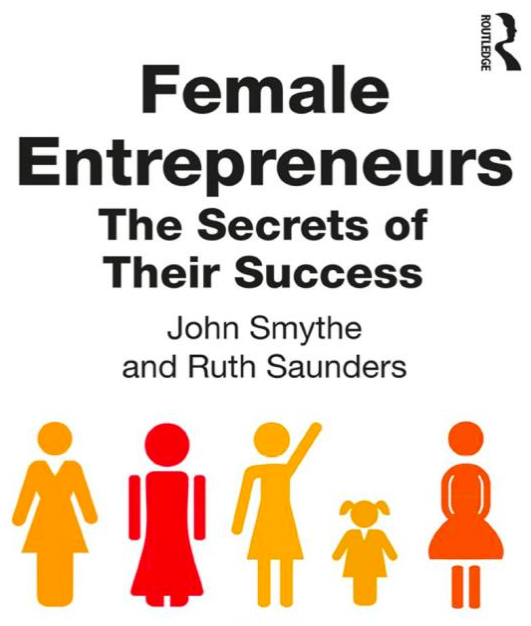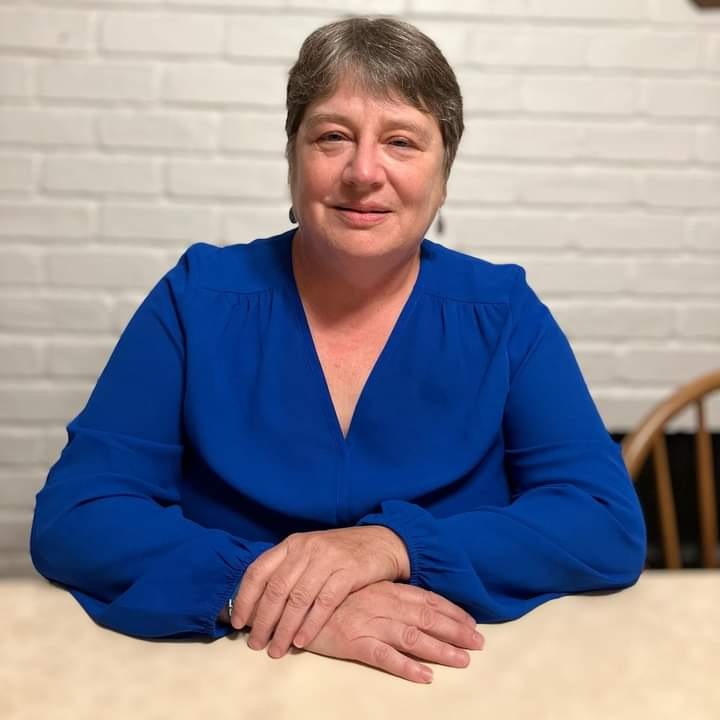
In the highly-detailed and purposefully-organized 2020 book, "Female Entrepreneurs: the Secrets of Their Success," authors John Smythe and Ruth Saunders don’t tell the stories of accomplished business women — they let the women tell them.
And what we learn from their stories is there is no typical female entrepreneur. Women who go on to start their own businesses have a myriad of backgrounds, motivations and goals. They launch their businesses at different ages, some as young as 10, others not until they're nearing traditional retirement age. But most have a vision and go for it.
“First off, let’s debunk the myth that entrepreneurship is the unique preserve of thrusting youth with a 21st-century proposition,” the authors wrote. “Well, it can be that but, as we found from our interviews, the bug can strike at any age, triggered by a variety of self-determined catalysts or responses to circumstances — or a mixture of the two.”
Saunders explained further in an interview with TriplePundit. “We went into the interviews with no preconception of what we were going to write,” she said. “We just got them to tell us their stories, and from there we got the themes coming out from it.”
Besides giving voice to 52 different women entrepreneurs, Saunders and Smythe effectively arranged the book almost as a how-to guide, outlining the steps for most aspects of planning, launching and running a business, including how to get started, discovering and honing an idea, picking the best supporters, developing and refining a work-life balance, and even how to elevate self-confidence.
“I think actually what was really nice about the book is that we interviewed people who were just starting out, versus in the thrust of early growth, versus into kind of more cruising mode, versus coming to the end of their life or having sold [the business] or doing their second or their third venture. So we had a whole spectrum of people,” Saunders explained.

The authors also pack the book with interesting statistics and “wow, who knew”-type facts, one of the most notable of which is that, as a whole, women entrepreneurs are more successful than men but receive far less cash from investors. In the past, women accounted for slightly more than 25 percent of the self-employed population, but since 2008, 58 percent of the newly self-employed have been female, according to the book. Women most often are drawn to launch businesses in the government, health, education and social services fields.
Part of the reason for the lack of funding could be that women entrepreneurs often don’t reflect the image financial backers have for this group of business leaders. “When it comes to raising either angel investment or venture capital money, women typically receive a tiny proportion of what’s given out, and that number has stayed stubbornly low over time,” the authors wrote. “...They (women) just don’t conform to the norm of the young hoodied-male geek.”
Not surprisingly, most women entrepreneurs cite family concerns and necessity as the main reasons for starting a business. Often they found that traditional workplaces were not willing to make adjustments for them to care for children or elderly family members. Men, however, were almost twice as likely as women to say that a primary reason they became self-employed was to "make more money."
One of the 52 entrepreneurs, Sandra Macleod, took a chance on starting her own business, Echo Research, after her employer released her when she was pregnant — and things took off.
“I was about to go off and have my first child and I remember my boss saying to me: ‘We have too many chief executives and you obviously won’t want to carry on working.’ So they gave me a handshake and wished me good luck,” Macleod related. “I wanted to continue working so I asked if I could take a franchise I’d won (CARMA) with me, and my boss said: ‘Well, it’s not going to come to anything, so yes, you’re welcome to it.’ I said thank you and hugged him and left. So I took on the franchise as no one was interested in it, rebranded it to Echo Research, and grew it into an $8 million company.”
The inspiration for the book, Smythe said, was his own late mother, an entrepreneurial-type at a time when such women were simply considered struggling. “My mother had passed away 10 years or so prior, and I was thinking about her,” Smythe told TriplePundit. “She was a single mother who brought me up in difficult circumstances. I was thinking about the sort of attributes that she had shown, you know, diligence, determination, all those sorts of strong things. And it got me thinking, in 2017, about female entrepreneurs and females in the executive suite, and it was beginning to become quite a big story. I just sort of jotted down the names of the female entrepreneurs that I knew and I didn't have to go and look up somewhere and it came to a staggering 26 and then I did the same for the males, which came to under half that. And I thought, ‘Hang on a sec, something's happening here.’”
Realizing the advantages of having a female co-author, Smythe approached Saunders. “I felt it was an honor to be asked,” she said.
The authors drew their own inspiration from the women they met. “The final thing that I think came across very strongly to me, listening to all these stories, is that they all set their business story in the context of their life story,” Smythe told us. “And that's one thing I don't think men would do.”
Through her interviews, Sauders said she learned about growing self-confidence and conquering a fear of failure. “How to overcome a lack of confidence is to play to your strengths and delegate your weaknesses,” she said. “So don't try to be good at everything, but recruit people around you who are not in your likeness to cover your weaknesses and fear of failure... that's going to lead to your next grade. So if you fail, understand why and adapt. And in many cases we have people say it was the failure that led them to be successful. And so, you have to embrace failure.”
Image credit: Unsplash

Ellen R. Delisio is a writer who lives in Long Island, NY. Over the past 30 years, her writing has focused on life science, sustainability, education issues and electric vehicles. Ellen is an avid reader and beach-goer.














